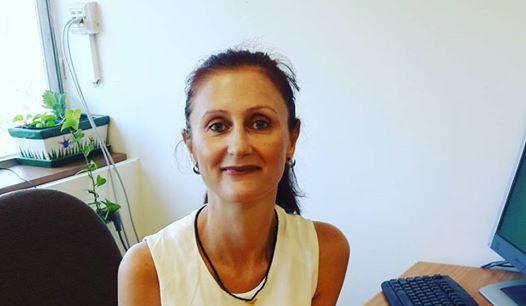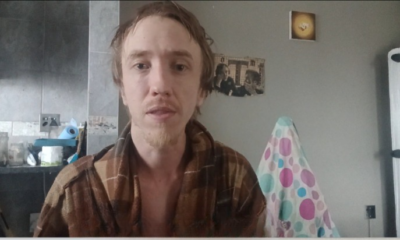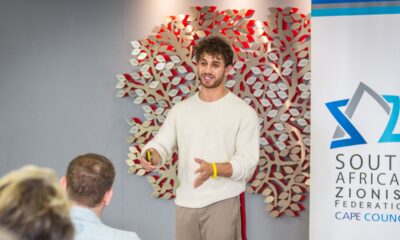
OpEds

Historic UN gathering debates antisemitism problem
“Antisemitism is an international problem that is a threat to democracy.” So said Dr Ahmed Shaheed, special rapporteur on freedom of religion or belief, office of the United Nations (UN) High Commissioner for Human Rights, who was addressing a conference exploring holistic approaches to antisemitism. The conference was held under the auspices of the United Nations Alliance of Civilizations (UNAOC) on 15 March.
The session was chaired by the high representative for UNAOC, Miguel Moratinos, who reiterated numerous times that combatting antisemitism in its various guises remains a priority for the UN. UN Secretary-General António Guterres appointed Moratinos in February 2020 to serve as the UN focal point for monitoring antisemitism and to facilitate a system-wide response.
The virtual gathering brought together speakers and participants including Rabbi Arthur Schneier, a UNAOC goodwill ambassador; Malcolm Hoenlein, the vice-chairperson of the Conference of Presidents of Major American Jewish Organizations; Katharina Von Schnurbein, the co-ordinator on combatting antisemitism and fostering Jewish life at the European Commission; Lord Eric Pickles, the United Kingdom’s special envoy for post-Holocaust issues; and Irwin Cotler, Canada’s special envoy on preserving Holocaust remembrance and combatting antisemitism.
Understanding the reservations that many expressed about the often-hostile environment that the UN and its various bodies present to Israel, Moratinos stressed that the Jewish state remained welcome and enjoyed friendly ties with many member countries.
It was my immense honour to represent World WIZO (the Women’s International Zionist Organisation) in my capacity as head of public diplomacy and hasbara, a portfolio I hold as an executive member of the global leadership. WIZO has a noble history at the UN, holds consultative status on UNICEF (the United Nations International Children’s Emergency Fund) and ECOSOC (United Nations Economic and Social Council), and has representation lobbying for women’s issues in Geneva, Vienna, and New York.
WIZO is a leading civil society organisation in Israel, and throughout our 100-year history, has demonstrated the ability to recognise antisemitism in our federations around the world and adapt and respond accordingly.
High on the agenda for many of the speakers, including myself, was the importance of adopting the IHRA (International Holocaust Remembrance Alliance) definition of antisemitism across government, media, educational organisations, civil society, and various other bodies.
At the same time that this gathering took place, Israel’s ambassador to the UN, Gilad Erdan, launched his initiative to get the UN as an international body to accept the IHRA definition. The rationale is that this move will obligate all of its organisations and member states to respect the parameters of defined antisemitism, and limit some of the incitement against Israel.
The other major area of concern is social media. Although some progress has been made in addressing and countering hate speech, social media platforms need to develop tools for defining antisemitic language.
This isn’t an attempt to crack down on free speech, but rather to address the hate-filled rhetoric that is prevalent on platforms such as Facebook, Twitter, Instagram, and TikTok.
In my address, I spoke about the vulnerability of young people to hate-filled messaging. I also spoke about the need to engage and educate social media influencers who understand and identify with the language of social justice but have little or no knowledge about the Holocaust.
This new form of Holocaust revisionism is often used as a reference for issues without a clear understanding of the magnitude and severity of this genocide of the Jews.
Speakers expressed unanimous concern about the potential dangers of social media, especially during this global pandemic when Jews are routinely blamed for the spread of COVID-19 and conspiracy theories abound.
It was clear just how big a problem unchecked hate speech is on social media. One of my recommendations was to make it mandatory by law for anyone signing up to give their full name and identity so that it makes it difficult for individuals to hide behind avatars.
“Antisemitism is a shared problem. Social media have to act responsibly,” said Dr Robert Williams, the deputy director of international affairs at the United States Holocaust Memorial Museum. “Antisemitism is worse now than at any point since 1948. The time to act is now before it’s too late, and we must do it together.”
The conference on 15 March was a very strong start in the global effort to look at more holistic ways to approach the problem of rising antisemitism. UN facilitators who acknowledged WIZO’s work noted how important it is to have women present in these discussions.
This historic gathering, which brought together some of the most respected experts, is proof that the UN recognises the veracity of the problem and the imperative to make combatting it a priority. The work starts now.
- Rolene Marks is World WIZO Executive for Public Diplomacy and Hasbara, and is co-founder of Lay of the Land and the SA-Israel Policy Forum.










